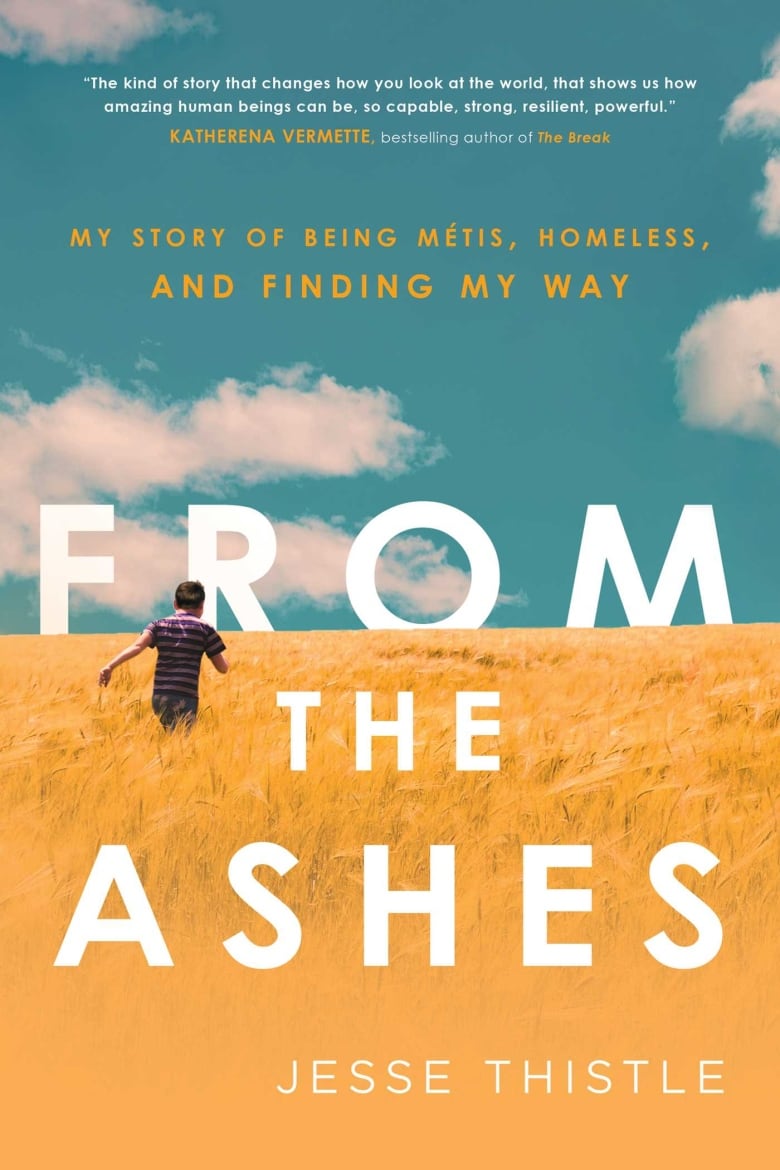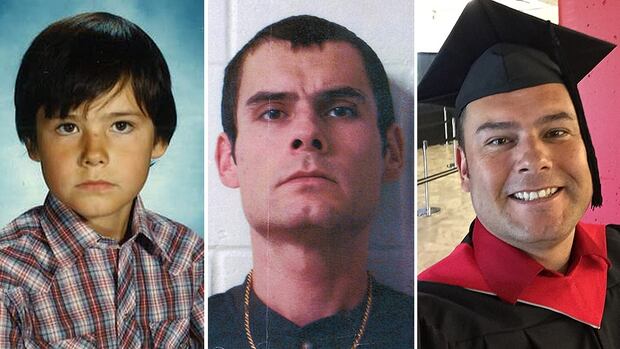How Jesse Thistle survived addiction, homelessness and incarceration — and became a Canada Reads finalist

Jesse Thistle is a Métis-Cree author, a Pierre Elliot Trudeau and Vanier Scholar and PhD candidate specializing in Indigenous homelessness, addiction and inter-generational trauma.
For Thistle, these issues are more than just subjects on the page. After a difficult childhood, Thistle spent much of his early adulthood struggling with addiction while living on the streets of Toronto.
Told in short chapters interspersed with poetry, his memoir From the Ashes details how his issues with abandonment and addiction led to homelessness, incarceration and his eventual redemption through higher education. CBC Books named Thistle a 2020 writer to watch.
George Canyon defended From the Ashes by Jesse Thistle on Canada Reads 2020.
Thistle spoke with CBC Books about how he wrote From the Ashes.

Accidental author
"I went to rehab and part of it was to write my four steps. I looked at what I did wrong to other people — and what other people did wrong to me — and at the events that traumatized me that led to a lot of resentments and shame.
"I decided to stick them on a blog. I was cataloguing them that way. The Toronto Star did a story on me that caught the attention of Simon & Schuster. I sent them my collection of four steps from rehab. They contacted me right away and said, 'This is going to make an amazing book, we want to publish you.'"
Flashes of memory
"If you look through the book, you'll see flashes of light every time I was traumatized. The way that my mind works, it's like looking through a shard of broken glass, with all the different light fragments. I can only capture them in one- and two-page memories because they either score my soul and I bleed too much or I can't remember because my mind blocks it out.
It was painful, but it was also very beautiful. These were really hard, painful, sharp memories.- Jesse Thistle
"It was painful, but it was also very beautiful. These were really hard, painful, sharp memories. But I also saw there were people that were trying to help me, like the kind shop owner who gave me food or my friend at the shelter who watched out for my shoes. My brother Jerry always took care of me and took me in and I had a lot of support from my wife, Lucie. It's the good and the bad."
Second chances
"People are complex and they do a lot of good and a lot of bad. No one's all virtuous and pristine and pure — and nobody's totally evil and deserves not to be forgiven. My life is an expression of that. I did a lot of horrible things to a lot of good people. I have to think about those things. But, ultimately I know that — like a lot of people — I was broken-hearted. And that led to homelessness, that led to criminality, that led to all those negative things.
No one's all virtuous and pristine and pure — and nobody's totally evil and deserves not to be forgiven. My life is an expression of that.- Jesse Thistle
"What pulled me out was the love people wrapped around me — my wife, my grandmother, reconciling with my grandfather — and loving myself."
Finding a voice
"I learned how to read in jail, basically, so I'm just going on instinct. I don't know any other way to write. I don't even think I'm a writer — I didn't know what I was doing — this is all just the way I remember it. It's the way I think, and the way I thought about it is the way it came out. I can't consciously explain it. It's like someone asking, 'What's going on when you turn on the light?'"
Reclaiming Indigenous identity
"I'm Métis-Cree and we have a very specific history as proud resistance fighters. We're not all alcoholics, we're not all homeless people, we're not all out on the streets, we're not all criminals — all those things I believed about myself. We're actually lawyers and doctors and people that contribute to society.
What pulled me out was the love people wrapped around me — my wife, my grandmother, reconciling with my grandfather — and loving myself.- Jesse Thistle
"It's strange that university became the vector that re-Indigenized me. In the past, educational institutions are what stripped away Indigeneity. Then I had to go back and connect with my community and do all the things that community members do. But initially, it was reading about positive Indigenous role models and believing that I could be like that too."
No lost causes
"I want people to understand that you can't just write people off because they've done something wrong. You have to give people a second chance. I'm one of those people.
"I would hope that people understand that becoming homeless and being in the justice system was not a choice of morality. It wasn't because I was just making bad choices. I was traumatized and I was trying my best to survive. I hope people understand that. It's about having a community of people that can love you back into the circle."
Jesse Thistle's comments have been edited for length and clarity. You can read more interviews in the How I Wrote It series here.
The Canada Reads 2020 contenders
- Alayna Fender defending Small Game Hunting at the Local Coward Gun Club by Megan Gail Coles
- Akil Augustine defending Radicalized by Cory Doctorow
- Amanda Brugel defending We Have Always Been Here by Samra Habib
- Kaniehtiio Horn defending Son of a Trickster by Eden Robinson
- George Canyon defending From the Ashes by Jesse Thistle


